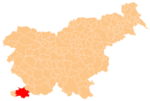In philosophy, rationalism is the epistemological view that "regards reason as the chief source and test of knowledge" or "any view appealing to reason as a source of knowledge or justification", often in contrast to other possible sources of knowledge such as faith, tradition, or sensory experience. More formally, rationalism is defined as a methodology or a theory "in which the criterion of truth is not sensory but intellectual and deductive".

The University of Ljubljana, abbreviated UL, is the oldest and largest university in Slovenia. It has approximately 38,000 enrolled students. The university has 23 faculties and three art academies with approximately 4,000 teaching and research staff, assisted by approximately 2,000 technical and administrative staff. The University of Ljubljana offers programs in the humanities, sciences, and technology, as well as in medicine, dentistry, and veterinary science.
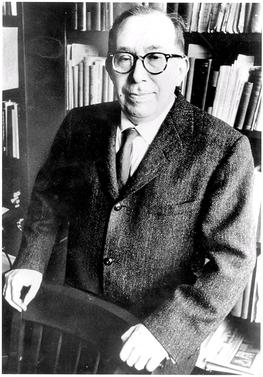
Leo Strauss was an American scholar of political philosophy. Born in Germany to Jewish parents, Strauss later emigrated from Germany to the United States. He spent much of his career as a professor of political science at the University of Chicago, where he taught several generations of students and published fifteen books.
Early modern philosophy The early modern era of philosophy was a progressive movement of Western thought, exploring through theories and discourse such topics as mind and matter, is a period in the history of philosophy that overlaps with the beginning of the period known as modern philosophy. It succeeded the medieval era of philosophy. Early modern philosophy is usually thought to have occurred between the 16th and 18th centuries, though some philosophers and historians may put this period slightly earlier. During this time, influential philosophers included Descartes, Locke, Hume, and Kant, all of whom contributed to the current understanding of philosophy.
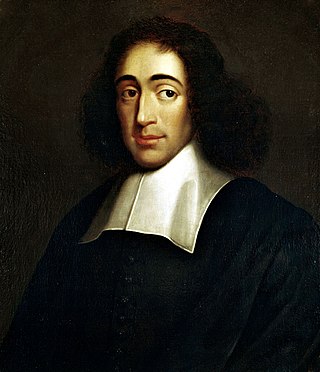
In the philosophy of Baruch Spinoza, conatus is an innate inclination of a thing to continue to exist and enhance itself. This thing may be mind, matter, or a combination of both, and is often associated with God's will in a pantheist view of nature. The conatus may refer to the instinctive will to live of living organisms or to various metaphysical theories of motion and inertia. Today, conatus is rarely used in the technical sense, since classical mechanics uses concepts such as inertia and conservation of momentum that have superseded it. It has, however, been a notable influence on later thinkers such as Arthur Schopenhauer and Friedrich Nietzsche.

Errol Eustace Harris, sometimes cited as E. E. Harris, was a South African philosopher. His work focused on developing a systematic and coherent account of the logic, metaphysics, and epistemology implicit in contemporary understanding of the world. Harris held that, in conjunction with empirical science, the Western philosophical tradition, in its commitment to the ideal of reason, contains the resources necessary to accomplish this end. He celebrated his 100th birthday in 2008.
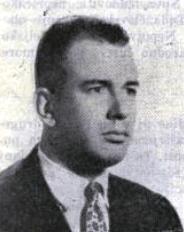
Milan Komar, also known as Emilio Komar was a Slovene Argentine Catholic philosopher and essayist.

Alojz Rebula was a Slovene writer, playwright, essayist, and translator, and a prominent member of the Slovene minority in Italy. He lived and worked in Villa Opicina in the Province of Trieste, Italy. He was a member of the Slovenian Academy of Sciences and Arts.
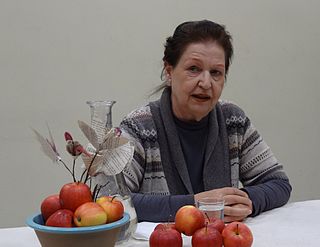
Alenka Puhar is a Slovenian journalist, author, translator, and historian. In 1982, she wrote a groundbreaking psychohistory-inspired book "The Primal Text of Life" about the 19th century social history of early childhood in Slovene Lands, then part of the Austro-Hungarian Empire. The book was in 2010 the subject of a television documentary that was in 2010 televised on the national RTV Slovenija. Her grandfather was the photographer and inventor Janez Puhar, who invented a process for photography on glass.

Rastko Močnik is a Slovenian sociologist, psychoanalyst, literary theorist, translator and political activist. Together with Slavoj Žižek and Mladen Dolar, he is considered one of the co-founders of the Ljubljana school of psychoanalysis.
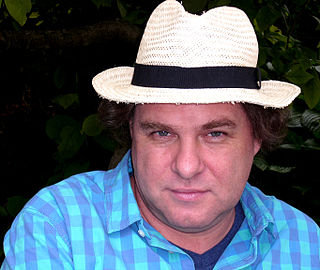
Dean Komel is a Slovenian philosopher.

Taras Kermauner was a Slovenian literary historian, critic, philosopher, essayist, playwright and translator.
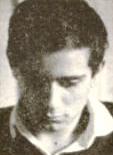
Peter Vodopivec is a Slovenian historian and public intellectual.

Klement Jug was a Slovene philosopher, essayist and mountaineer who died while climbing Mount Triglav. Although he did not publish many works during his lifetime, he became one of the most influential thinkers of the younger generations of Slovenian intellectuals in the interwar period.
Ivo Urbančič was a Slovenian philosopher. He is considered by many to be one of the fathers of the phenomenological school in Slovenia.
Ljubljana school of psychoanalysis, also known as the Ljubljana Lacanian School, is a popular name for a school of thought centred on the Society for Theoretical Psychoanalysis based in Ljubljana, Slovenia. Philosophers related to School include Rastko Močnik, Slavoj Žižek, Mladen Dolar, Alenka Zupančič, Miran Božovič and Eva Bahovec. Other scholars associated with the school include philosophers Simon Hajdini, Zdravko Kobe, Rado Riha, Jelica Šumič Riha, sociologist Renata Salecl and philosopher Peter Klepec.

Renata Salecl is a Slovene philosopher, sociologist and legal theorist. She is a senior researcher at the Institute of Criminology, Faculty of Law at the University of Ljubljana, and holds a professorship at Birkbeck College, University of London. She has been a visiting professor at London School of Economics, lecturing on the topic of emotions and law. Every year she lectures at Benjamin N. Cardozo School of Law, on Psychoanalysis and Law, and she has also been teaching courses on neuroscience and law. Since 2012 she has been visiting professor at the Department of Social Science, Heath and Medicine at King's College London. Her books have been translated into fifteen languages. In 2017, she was elected as a member of the Slovene Academy of Science.

Miran Hladnik is a Slovenian literary historian, specializing in quantitative analysis of Slovene rural stories and in Slovene historical novel.
This is a timeline of philosophy in the 17th century.

Milan Brglez is a Slovenian political scientist and politician who served as Speaker of the National Assembly of Slovenia from 2014 to 2018. He has served as a Member of the European Parliament (MEP) since 2019. A member of the Social Democrats, part of the Party of European Socialists, Brglez was a candidate in the 2022 presidential election.
















